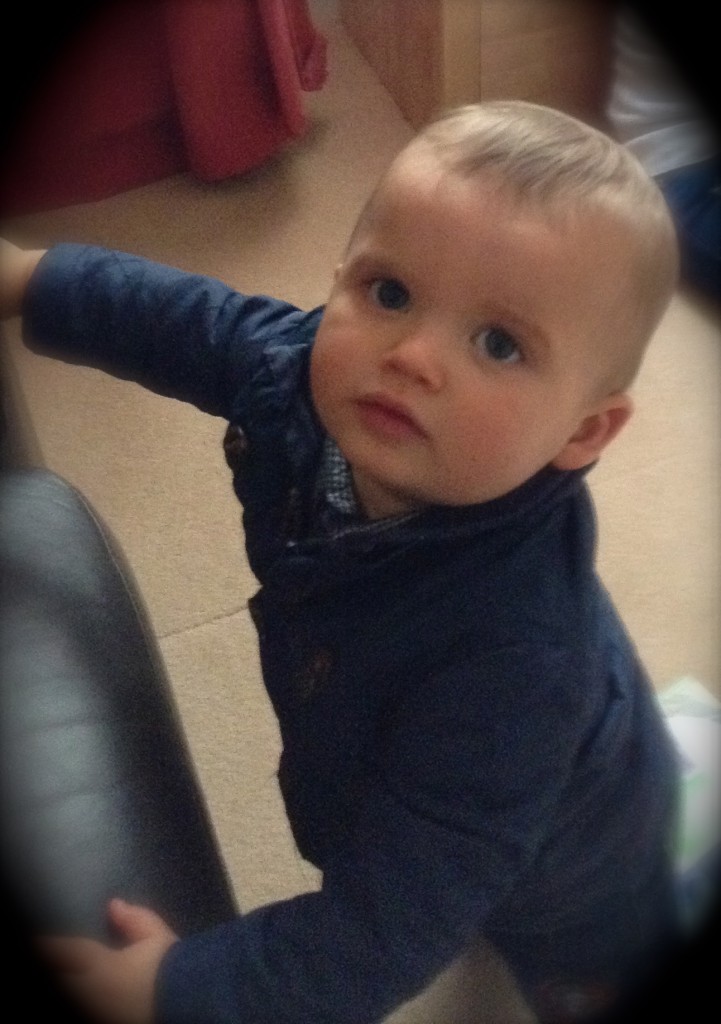This is my nephew, Kai. He’s almost a year old and has been trying to walk. In fact, he took his first few steps the other day. But Kai has not quite mastered walking yet. So I’m wondering, at what point should we tell him to give up? When should he say to himself, “I can’t do this walking lark, I’m no good at it.” When should he just sit himself back down and stay there?
Should we say, “Right, next time Kai falls down, that’s it. Let’s see if we can get him to swim instead.” Or… should we allow him to keep trying?
Does he just need a little more practice?
You might think this is a ridiculous thing to say. Of course he just needs more practice! But we do this to ourselves every day. We speak in absolutes. We speak as if our traits, skills and habits are fixed for all eternity. They’re not.
As a personal trainer I hear it a lot: “I can’t…” “I’m no good at…” “I have no strength/flexibility/co-ordination.”
Don’t you just need a little more practice?
People say it’s different. It’s not. The greats were made great through practice. It has been shown that deliberate practice over a long period of time is what leads to expert performance. That includes learning to walk. It also includes learning how to cook and eat mindfully. It includes getting stronger, more supple and more coordinated in your movement. It includes thinking and speaking in ways that actually serve you.
“Individuals acquire virtually all of the distinguishing characteristics of expert performance through relevant activities (deliberate practice)”[i].
Something I’ve banned from my personal training sessions are the words “I can’t”. The only time my clients get to use those words is if they say, “yet” at the end of the sentence. ‘Yet’ changes things. ‘Yet’ assumes that sometime in the future you will have that capability. Kai can’t walk yet, but he will.
You might not be able to cook yet, but you can learn. You might not be able to do a pull-up yet, but you can work towards it. You might not feel like eating breakfast in the morning yet, but if you want to, you can change. We can adapt. You might not be able to draw or play a musical instrument or speak another language yet, but if you want to, it is possible. How much practice have you had?
If something is important to you, you don’t get to give up at the first sign of struggle. You don’t get to give up just because it is hard. You don’t get to give up when you fail. If it’s really important, you don’t get to give up even when it feels like you’ll never manage it. The greats out there spent at least 10 years mastering their craft and you want to quit after one rep?
Like baby Kai learning to walk, there never comes a time to give up. Always keep reaching. Do a few more reps. Get a little more practice.
If Kai falls down, he’ll try again. We can all do the same.
BIG IDEA: Our traits, skills and habits are not a life-sentence. With practice, we can improve at almost anything.
TAKEAWAY: If something is important to you, keep practising!
ACTION STEP: Take ONE small step forward today!
Always Keep Reaching!
Mike
[i] Ericsson, K.A., Krampe, R.T., Tesch-Romer, C. 1993. The Role of Deliberate Practice in the Acquisition of Expert Performance. Psychological Review 1993, Vol. 100. (3) pp363-406





